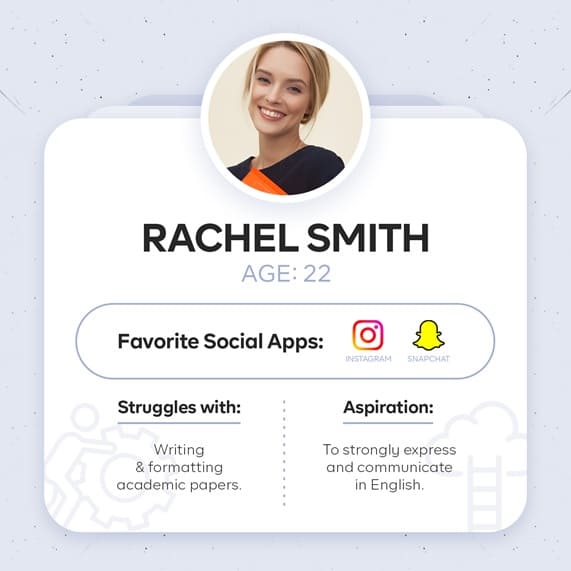Contents
One trend that’s fast becoming a norm is to turn skills, knowledge, and expertise in a particular area into a course that others can learn from.
An online course is an excellent means to share your knowledge with others and make proceeds out of it. It also positions you as an expert in your field because you can only teach something you are good at.
On most occasions, experts know what they want to offer in a course, but presenting it to the right audience can pose as a challenge, especially if marketing isn’t their forte.
Marketing an online course is as easy as promoting any online product. However, It’s essential to follow the right steps by acquiring and utilizing the right tools.
Here, we’ve put together the best tips that’ll help you market your online course, and in the end, bring in the best sales and ROI for your courses.
Make Market Research
Although you’re most likely at the point where your course is complete and only needs marketing, answering some crucial questions while creating your online course is still an essential part of the big marketing picture. Here are the questions you should ask yourself.
Is There a Need?
There are many online course ideas that we have, but with adequate research, we figure that it’s not going to be advantageous to anyone if the exact course already exists. You need to create a course that you know will add new value to people and help solve a real-life problem. Good market research enables you to simplify the entire process. If a similar course already exists, you know how to tweak and make yours better.
Who Is My Target Audience?
Answering this question will help define who your course is targeted at and create an appropriate buying persona for them. Defining your audience enables you to design the most suitable syllabus for them, or tweak an existing syllabus to match their needs. Sometimes your course may be one that’s highly sought after, but the perspective you’re going with may not be the most appropriate.
Thoughtfully answering these questions makes for good market research, which in turn helps you figure out what you need to focus on and the best route to build your marketing strategy.
How Will I Reach My Target Audience?
Once you know them, getting to your target audience becomes more straightforward. All you need to do is figure out where you can find them, or where they can have the opportunity to leverage your knowledge. There are a few questions you should get answers to, including but not limited to the following:
- Which online platform do they use?
- What’s their age group?
- How are their buying decisions influenced?
- What interests them?
Answering these questions and carrying out adequate research is a fundamental step in having a good marketing strategy for your online course. It helps you figure out how and where to channel your marketing and get the best out of your efforts.
Use Compelling Course Title
At this point, your course content is ready, and since you developed it yourself, you have a good idea about its content. Picking a course title is as important as creating the course itself. Think of it this way, your audience (or anyone) isn’t duty-bound to take your course. They’ll only take it if they think it’ll do them a lot of good and improve their knowledge.
So, even if you have great content, one way (and the quickest) to let your audience know is through your course title. Your course title needs to be compelling.
One way to achieve this is by putting yourself in your audience’s shoes;
- How will you search for an online course you need relating to this topic?
- What keywords or search terms are you going to put in the search window to find the information you’re looking for?
If you want to learn how to shoot and edit YouTube videos, you’ll most likely put keywords like “how to shoot and edit YouTube videos” or something similar. That’s the same way your potential audience will search for your course, and hopefully, find it. One way to ensure this happens is for you to include identifiable and compelling keywords in your title.
Thankfully, there are several tools available to help you identify and plan your keywords in relation to your course topic. You can use BuzzSumo or Keyword Planner to identify these keywords and position your course directly before your potential students. Take the time to create a course page with a great title and a description that provides everything the audience needs to know.
Promote on Social Media
Social media is a useful tool for any online marketer.
Even right before your online course is complete, putting out words in anticipation to your audience is important. Your market research will reveal what social media platforms your target audience frequently use. While those platforms will have more concentration for your social media marketing strategy, it isn’t limited to these platforms alone.
About social media promotion for your online course, here’s what you can do;
Optimize Your Social Media Profiles
Use your social media profiles to build your brand and position yourself as an expert in your course topic.
Optimizing your social media profiles will mean that you update your bio on different social media platforms to one that reflects your area of expertise, specifically your book’s content.
You should also include a link to your course or your website where they can access your course. Give information in your bios about your coming course if it isn’t out yet, or give the necessary information your audience needs to know.
Build and Promote Quality Content
Asides from promoting your online course, your audience needs to trust your content and views in relation to your niche topic. So, while growing your audience, capitalize on building high-quality courses.
Consider producing good quality content apart from the course and while you’re at it, promote similar content and collaborate with industry leaders in related niches.
Consistency also helps your audience feel they can trust what you put out. It enables you to keep your audience engaged, and engagement drives your content towards those who need it.
You can use social media to create groups for your students for better communication. Facebook is an easy and free way to build such a community. Private Facebook groups can be created for students to connect even beyond the group to their personal networks.
LinkedIn is another viable social media tool that can be useful for marketing your online course. This platform is where professionals meet and are looking to learn the latest information in their industry. You can connect with these professionals, students, or other people interested in your niche and teach them.
One way to draw attention to your social media posts is by using professionally designed posts for your advertisements. However, you don’t need to employ professional designers on this, as you can use a tool like PosterMyWall to create your own course advertisement effortlessly. It’s free and easy to use, requiring no expertise in any way.
Make guest appearances
Expose your online course to a new audience by guest appearing on blogs and podcasts of people who have a level of establishment in your industry.
Whenever you write an article that gets published somewhere else apart from your platform, you attract more eyes to your own product. Your post will usually get linked to other websites, media, and even bigger blogs. Not only will this increase your visibility, but it will also showcase your expertise.
Podcasts also allow you to promote your course and give the audience a clue about what to expect from it. The idea is to build on other people’s audience and expand your visibility even beyond your own reach.
If you don’t know the leading podcasts in your niche, you can look up the new and noteworthy category of podcasts on iTunes and pick out those that are relating to what you do. Many podcast hosts will be willing to grant you a platform to talk, as they’re on the look out for new content and voices to be heard. You can also check out podcasts that other influencers in your industry have been on. Come up with a list, research, and reach out to them.
Offer Discounts
One thing to always remember is that people thrive on incentives. The audience wants to know what your course will offer them that no one out there will. One of these peculiarities can be discounts, especially for the early birds.
Discounts help you generate satisfactory revenue for your course. You can offer a reasonable cut-price to people who sign-up for your course even before it launches. Pre-launch discount is a great tactic for selling online courses.
If you aren’t a first-time online teacher, you can bundle closely related topics and offer them to your audience at discounted prices. This appears more like an incentive that’ll attract people to not just one course, but multiple of your courses.
You can also offer a pre-packaged free course to entice your students. Chances are that they’ll want to complete the learning process after they’ve had the first. A useful tactic is making the first two classes of the course free. It offers a trial for students so that they can buy the rest of the course if they find it relevant to their interests.
Discounts help you get more feedback from those who take your offer because they’re more accountable to you. Feedback and testimonials help to convert other hesitant customers to enroll.
Final Thoughts
Marketing an online course is similar to selling any online product. Your intention is to drive traffic to your course, drive sales, and convert to interest for your business.
Creating an online course goes beyond building a syllabus and leaving it on your sales page. It goes as far as getting the right audience attracted to your product, and the only way to do this is to have an effective marketing plan.



